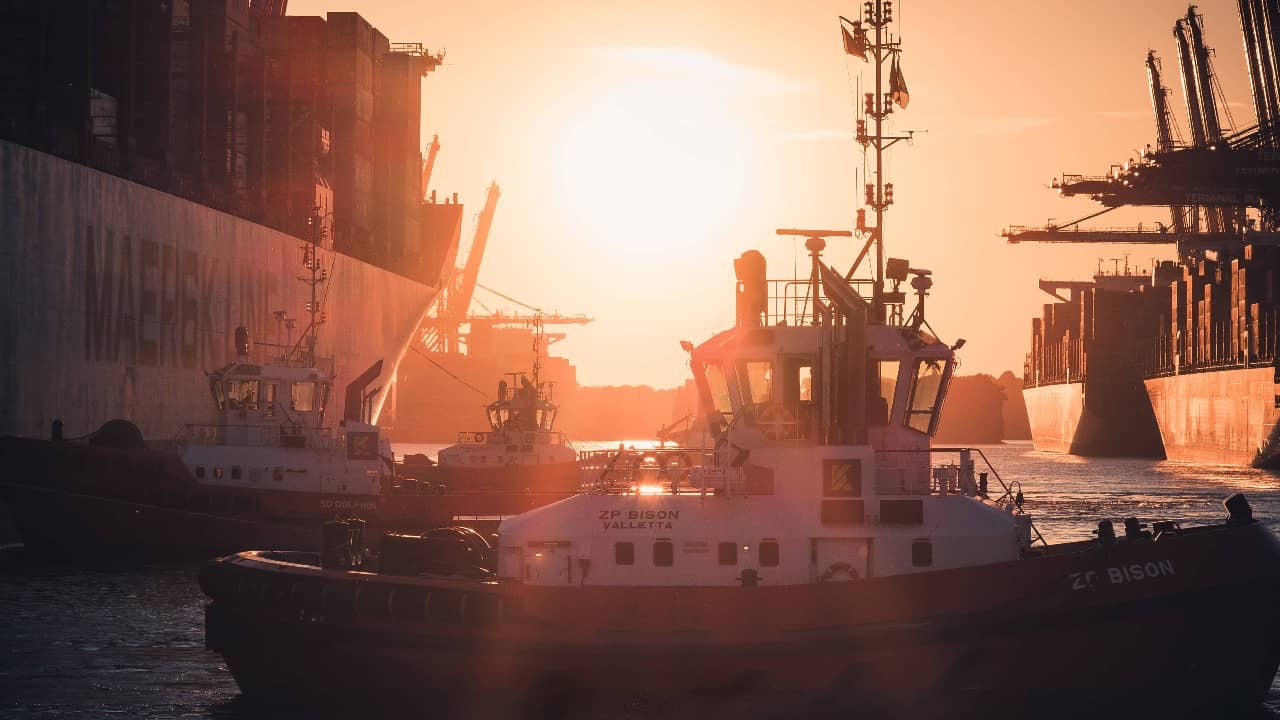
Identifying the Major Business Risks for 2023
6-minute read
Today we look at the most important business concerns for companies worldwide for 2023.
Inflationary pressures, energy prices, climate change, digitalization, and geopolitical uncertainty test already strained business models and supply chains, according to the Allianz Risk Barometer, which complied responses from 2,712 risk management experts from a record 94 countries.
Despite positive moves to diversify business models and supply chains since Covid-19, businesses continue to experience significant disruption around the world.
The pandemic came as a massive shock to business models, creating global shortages, delays and higher prices. While the war in Ukraine triggered an energy crisis, particularly in Europe, turbocharging inflation.
Unsurprisingly, given the current ‘permacrisis’, business interruption and supply chain disruption rank as the second top risk in this year’s Allianz Risk Barometer at 34%.
It is second only to cyber incidents (by just a few votes, also on 34%), whose top position reflects the importance of today’s digital economy, the evolving threat from ransomware and extortion, as well as geopolitical rivalries and conflicts increasingly being played out in cyberspace.
Indeed, the results show that a number of business interruption-related risks have climbed this year’s rankings as the world’s new economic and political consequences in the aftermath of Covid-19 and the Ukraine war take hold.
These include the impact of the energy crisis, a new entry in the 2023 survey at #4, while macroeconomic developments, such as inflation and a potential recession, peak at #3 – its highest position since the first Allianz Risk Barometer in 2012.
Political risks and violence is another new entry in the top 10 global risks at #10, and the shortage of skilled workforce rises to #8.
Conversely, the pandemic outbreak plummets the list of concerns (#4 in 2022 to #13 in 2023) as vaccines have ended lockdowns and restrictions in most major markets.
The exception? China sees pandemic risk rise year-on-year (from #9 to #3) – the only country in the survey to do so – following its recent easing of long-in-place restrictions.
Global risks in focus
Rank 1: Cyber incidents

Cyber risks, such as IT outages, ransomware attacks or data breaches, rank as the most important risk globally (34% of responses) for the second year in succession – the first time this has occurred.
Given that cybercrime incidents are now estimated to cost the world economy in excess of US$1trn a year – around 1% of global GDP – it perhaps should come as no surprise that cyber risk is the top customer concern in this year’s Allianz Risk Barometer, selected by more than a third of all respondents.
In addition to being voted the top risk globally, cyber incidents also rank as the top peril in 19 different countries. It is the risk small companies are most concerned about and is the cause of business interruption companies fear most, while cyber security resilience ranks as the most concerning environmental, social, and governance (ESG) risk trend.
“For many companies, the threat in cyberspace is still higher than ever,” says Scott Sayce, Global Head of Cyber at AGCS and Group Head of the Cyber Center of Competence.
“The conflict in Ukraine and wider geopolitical tensions are reshaping the cyber risk landscape, heightening the risk of a large-scale cyber-attack, according to respondents. The frequency of ransomware attacks remains high, with losses increasing as criminals hone their tactics to extort more money, while the average cost of a data-breach is at an all-time high. At the same time, attacks are not just restricted to large companies, increasingly we see more small and mid-size businesses impacted. Then, there is also a growing shortage of cyber security professionals, which bring challenges when it comes to improving security.”
Rank 2: Business interruption

It comes as little surprise that business interruption and supply chain risks dominate this year’s Allianz Risk Barometer.
Following another year of global supply chain disruption, business interruption ranks as the second most concerning risk for companies worldwide.
“Business interruption will always be a foremost concern given it is closely linked to profits and revenues and because business models are vulnerable to the geopolitical landscape. Lean supply chains are not always as good value as they appear and there can be a very high dependence on single geopolitical regions such as China, for example, for active pharmaceutical ingredients to processed lithium used in batteries, or Russia for energy.
Rank 3: Macroeconomic developments
2022 started with high hopes for a continued global economic recovery after the Covid-19 crisis.
The Russian invasion of Ukraine abruptly dashed these.
According to Allianz Research, expectations for 2023 are correspondingly pessimistic, ensuring a top-three risk ranking for the first time since 2012.
The current situation is characterized by one peculiarity: all three major economic areas – the US, China and Europe – are in crisis at the same time, albeit for different reasons, according to Allianz Research.
In Europe, the Russian invasion of Ukraine and the ensuing energy crisis are at the forefront: exploding energy prices are driving inflation to ever-new heights and “eating” into the entire price structure.
The result is falling real incomes and corporate profits, with corresponding consequences for consumption, production and investment. Restrictive monetary policy to contain inflation expectations is rather counterproductive in this situation, but without alternative.
On the other hand, China is much less affected by the war in Ukraine.
The issues here are domestic, with two particularly noteworthy points: easing the strict zero-covid policy will stress-test the Chinese economy, while the weakness of the (huge) real estate sector remains a drag on consumer sentiment.
The US is also struggling with a crisis primarily of its own making. The ill-timed and oversized fiscal packages during and shortly after the pandemic fueled inflation.
This somewhat belatedly brought the Federal Reserve onto the scene, which is now trying to put the genie back in the inflation bottle with hefty interest rate hikes.
The accompanying tightening of financing conditions is forcing companies and households to cut spending and leading the economy into recession.
Rank 4: Energy crisis

The energy crisis arrives in the top 10 global risks for the first time at #4, as the world grapples with spiralling fuel costs, supply disruptions, inflation, and the effects of Russia’s invasion of Ukraine.
Even before the invasion of Ukraine, energy prices had been rising.
The post-pandemic economy recovery in 2021 had seen a demand surge, while supply chain blockages and delayed maintenance work caused widespread disruptions.
The global energy market was destabilized further with the invasion of Ukraine by Russia, the world’s largest exporter of fossil fuels, in February 2022.
Rank 5: Changes in legislation and regulation
The energy crisis has made it clear: there is no way around decarbonizing the economy.
This requires billions in investments in new technologies and a comprehensive redesign of corporate reporting, helping to ensure compliance challenges remain a top five risk.
Rank 6: Natural catastrophes
Natural catastrophes risk falls three positions, overshadowed by seemingly more pressing developments on the risk landscape. However, there is no room for complacency, as events in 2022 showed that single events continue to cause losses in the billions of dollars.
Rank 7: Climate change

This critical risk has also declined in importance year-on-year as the war and economic crisis factors such as inflation and the energy crisis again take precedence. However, the Allianz Risk Barometer results also show that companies continue to take risk mitigation action.
Climate change and global warming threaten companies in a number of different ways. First and foremost, higher property damage and business interruption risks result from natural hazards and extreme weather events such as floods, storms, thunderstorms or droughts.
Then there is the threat of legal and liability risks due to the global comprehensive regulatory framework, increasing disclosure requirements, and the threat of greenwashing accusations or climate lawsuits.
Rank 8: Shortage of skilled workforce
Talent and workforce issues climb one place year-on-year to #8.
Rank 9: Fire and explosion
Fire perils, excluding wildfires, rank #9 overall, falling from #7 in 2022.
Fire risks are often well understood and typically well-risk managed. However, fire remains a significant cause of the business interruption and supply chain disruption, especially where companies rely on third-party suppliers for critical components.
Claims analysis by Allianz shows that fire is the largest single cause of corporate insurance losses.
Rank 10: Political risks and violence
2022 was another year of global turmoil, with conflict and civil unrest dominating the news, ensuring political risks and violence ranks as a new entry in the top 10 global risks. Activity is expected to continue in 2023.
Covid-19 and subsequent disruption have increased awareness around business interruption and supply chain risks, and companies need to understand the risks and take action to build resilience and de-risk.
Source: Allianz Risk Barometer 2023 by Allianz Global Corporate & Specialty (AGCS).
P.S. Easy Freight Ltd helps New Zealand importers & exporters to save money on international freight and reduce mistakes by guiding how to comply with Customs and biosecurity rules.
➔ Contact us now to learn how we can assist you.
